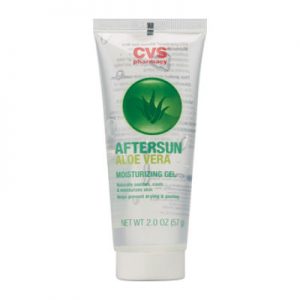CVS Aloe Vera: Shouldn’t You be Able to Trust a Label?
July 8th, 2016. By LucyC
Consumer Fraud and the Slippery Slope
During the past few months there has been what one could call a “rash” of consumer fraud lawsuits filed concerning products that do not contain ingredients as advertised, and / or 100% of the ingredients advertised etc. Case in point, last week CVS Health found itself on the end of a proposed consumer fraud class action lawsuit over allegations it falsely advertised the Aloe Vera content on its moisturizing gel.
The issue, it seems, is that the CVS Aftersun Aloe Vera moisturizing gel does not contain 100 percent aloe vera, but does contain anti-freeze. Seriously. An allegedly non-toxic antifreeze, but antifreeze nevertheless.
The lawsuit was filed by Patricia Bordenet, a customer in Illinois, who went out and had the product tested. So my question is, who does that? I have to admit it’s not the first thought that comes to mind when I’m in the drugstore—or any store for that matter—looking for a specific product to purchase. I trust the label. And, I’m guessing, therein lies the rub.
Hats off to Bordenet for getting the product tested, because likely most of us would not have suspected the product to contain antifreeze. Admittedly, we might have our doubts about just how much Aloe Vera the product contains—everything has a shelf-life, after all—but even if enquiring minds wanted more information—would you have gone to the trouble of having the product tested?
So much for taking things on face value. And face value is, presumably, what many companies depend on when they make the claims they do on their products, and god knows there have been some pretty outrageous ones.
Take, for example, the Kardashian endorsed Waste Gang corsets. The packaging on that, according to the lawsuit, claimed that it would burn fat and help women achieve a smaller waist. Well, I can see you might sweat off the weight, under duress of wearing the product, but that’s not something you would want to advertise.
The Waist Gang Society LLC (Society?) has to pony up a $5 million settlement for not telling it like it is—which is that the corsets redistribute the fat—not “burn fat and control the user’s weight,” Oh, if it was only that easy! Sign me up!
Back to the antifreeze. The other, more serious consideration with failure to disclose all the contents of a product—particularly a product that is either applied to the body or ingested, is that people using it may suffer an allergic reaction—or worse—as a result of exposure to that product. There you are in the ER with no idea how or why you got there. That’s helpful. And likely not something that was thought through when the labeling or advertising was developed. Giving the benefit of the doubt here.
And now we find ourselves at the precipice of the Slippery Slope. Because giving the benefit of the doubt is not always such a good idea, as is evidenced by a slew of drug injury settlements—most recently one for $70 million involving a young man who grew breasts as a result of using Risperdal. The jury found that the maker of the drug, Janssen, knowingly concealed information about the side effects of gynecomastia.
But I digress. Well, no, I just went down the Slippery Slope. So enough. Enough of the exaggerated claims, enough of the lies, why not just make a safe product that is what it claims to be? While that may be an altruistic notion, does that necessarily make it difficult? If it is too difficult—then off to court you go.
-
Leave a Reply
Archive by Category
- Accidents (24)
- Airlines (9)
- Asbestos Mesothelioma (262)
- Automotive (25)
- Celebrity (14)
- Class Action (84)
- Complaints/Comments (15)
- Consumer Fraud (84)
- Contest (2)
- Court of Public Opinion (5)
- Crazy Sh*t Lawyers See (61)
- Criminal Law (4)
- Defective Products (111)
- DePuy ASR Hip Recall (2)
- Discrimination (22)
- Drugs/Medical (248)
- Elder Care Abuse (4)
- Emerging Issues (462)
- Employment (54)
- Environment (52)
- Financial (28)
- Food Illness (15)
- Human/Civil Rights (4)
- Insecurities (5)
- Insurance (16)
- Intellectual Property (16)
- Internet/E-commerce (19)
- lawsuits (161)
- Lawyers (20)
- Lawyers Giving Back (43)
- Lex Levity (10)
- Personal Injury (106)
- Pleading Ignorance (53)
- Real Estate (2)
- Recall (6)
- Scam (3)
- Securities (13)
- Settlement (81)
- Tort Reform (2)
- Totally Tortelicious (81)
- Veterans (11)
- Whistleblower (9)